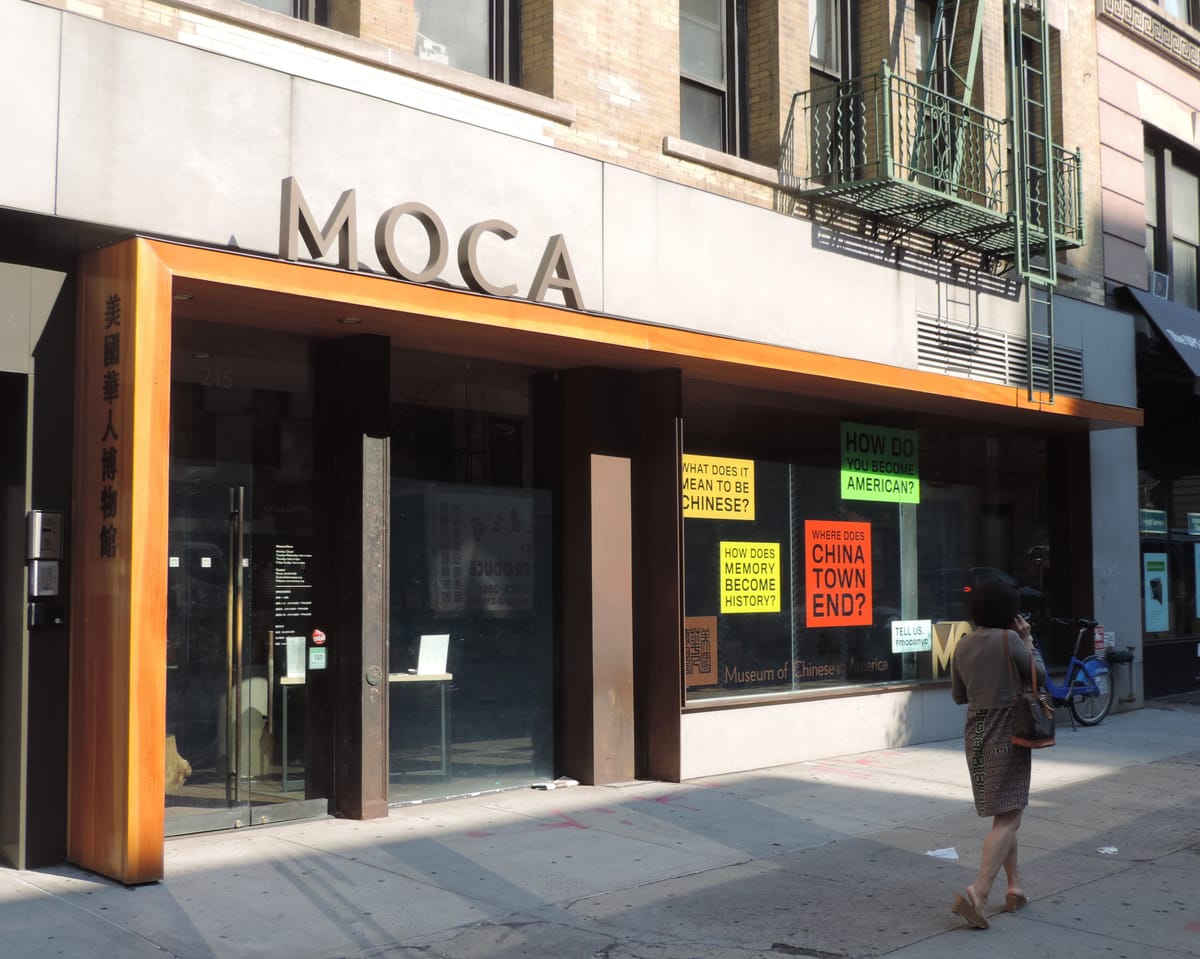
The Museum of Chinese in America has filed a petition in New York Supreme Court seeking to lower its property tax bill, claiming city assessors overvalued its Chinatown building by more than four times its worth.
Public tax records show that MOCA’s 215 Centre Street property was assessed to have a market value of about $9 million, with a taxable assessed value of roughly $3.8 million—about 45% of its market worth and the standard rate used for commercial properties in New York City.
The museum has contested the assessment in a court filing obtained by Urgent Matter. Such filings are a routine step for institutions contesting city assessments. But MOCA argues that its value is closer to $1 million, calling the city’s valuation “excessive” and “unequal,” and says it should be fully tax-exempt as a nonprofit cultural institution.
The filing also comes after years of ongoing criticism from MOCA’s Chinatown neighbors over funding it received from the city to purchase the property.
The museum said in court documents that, earlier this year, it made an application to the New York City Tax Commission to review its tax assessment, but city officials upheld their determination of the property’s value in May.
In the petition, MOCA suggested that it shouldn’t be taxed at all, claiming an exempt under New York State law, specifically under the state’s Real Property Tax Law sections governing nonprofit and charitable use.
Under the law, properties owned by nonprofits and used exclusively for charitable, educational or cultural purposes can be wholly exempt from local property taxes.
“The property should have been wholly exempt from taxation,” the document reads.
If the court agrees with its claims of exemption, its argument against overvaluation becomes moot and its taxes would drop to zero for the applicable year.
The legal challenge comes after MOCA closed in January 2024 on the $51.1 million purchase of the 215 Centre Street building, a former industrial building it has occupied since 2009, using more than $35 million in funding it accepted from the city in 2018. The museum also previously purchased the land the building sits on for $7.4 million in 2021.
But the city funding used for the purchase of the building was linked to the construction of a controversial new jail in Chinatown, which has led to claims by residents of Chinatown that the museum has sold out to the city.
Last November, protesters demonstrated outside of MOCA’s annual Legacy Awards Gala and accused the museum of harming Chinatown’s residents and economy with the deal. They called on the museum to return the $35 million and stand with residents against the construction of the jail.
Critics have also called on the museum to support the restaurant Jing Fong, once the largest Chinese restaurant in New York City that closed in 2021 when negotiations over its lease agreement with landlord Jonathan Chu, a co-chair of the museum board, failed.
“Many of the concerns the protestors bring up — the loss of jobs due to iconic restaurant closures, preservation of New York City’s Chinatown and its history, the impact of a massive jail in the community — are things that the museum staff and board are concerned about and already work on in various capacities,” museum trustee Jennifer Lee said in a statement to Hyperallergic at the time.
“We look forward to the point where we can have a productive, actionable conversation about how we can collectively address these together.”
The tax assessment also comes after MOCA underwent a significant restoration in 2020 after a fire ravaged parts of its archives.
Follow along with other lawsuits at Urgent Matter's art lawsuit tracker.
